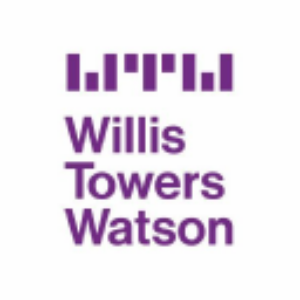Very large asset owners can change the world
Willis Towers Watson reports that the Asset Owner 100 (AO100), representing the world's largest asset owners, grew by 6% to exceed $20 trillion in assets. Pension funds make up over 60% of this total, followed by sovereign wealth funds at 32%. The AO100 is increasingly focusing on ESG integration and real-world impacts in investment strategies. Goals include aligning with the Paris Agreement for net-zero emissions by 2050. Challenges faced by these asset owners include redefining their missions and developing governance structures.
- AO100 assets surpassed $20 trillion, indicating significant growth.
- Focus on ESG strategies and alignment with the Paris Agreement could lead to improved long-term outcomes.
- Universal owner strategies may enhance collaborative investments and financial performance.
- Asset owners face challenges in redefining purpose and strategy.
- Governance restructuring may complicate investment processes.
Insights
Analyzing...
Leader funds usher in new era of ESG
ARLINGTON, Va., Nov. 16, 2020 (GLOBE NEWSWIRE) -- The Asset Owner 100 (AO100) — the world’s 100 largest asset owners — grew by
“With responsibility for over one-third of all asset owner capital globally, the AO100’s influence on other investors and society is growing and becoming more important,” said Roger Urwin, co-founder of the Thinking Ahead Institute.
According to the research, the AO100 have become more prominent in integrating environmental, social and governance (ESG) and being more active owners, including aiming for real-world impacts in their investment strategies. These strategies increasingly include new elements, such as factoring in member views, adopting new investment benchmarks, reporting on the impacts of their investment strategies (via the TCFD1[1] framework and the SDGs2[2]), reducing carbon emissions from portfolio holdings and investing in assets that will support the transition toward a low-carbon economy, and devising and implementing climate transition strategies that align with the Paris Agreement.
“At the larger end of the AO100, funds are pursuing so-called universal owner strategies, which contribute to safeguarding the financial system and addressing other systemic risks, including climate change, without sacrificing risk-adjusted returns. This is consistent with a new era of ESG — which we call ESG 3.0 — that is fundamentally different from previous versions in that it includes real-world impacts on the environment and society while delivering better outcomes for beneficiaries,” said Urwin.
The research indicates that universal owner strategies are highly collaborative and involve working through industry groups, such as the Principles for Responsible Investment (PRI) and Net-Zero Asset Owner Alliance, and improve long-term financial outcomes, through beta (market return) rather than alpha (securities relative return).
“Increasing numbers of the AO100 are following nation states and corporations in declaring their intention to align with the Paris Agreement and be net-zero by 2050, via their investment portfolios. This is an ambitious goal and will require new types of investment mandates that explicitly incorporate a third dimension of investment after risk and return: impact. These three-dimensional mandates (3D mandates) will, of necessity, have to be highly innovative portfolios and engagement strategies if they are to deliver a combination of real-world impacts and improved portfolio outcomes,” said Urwin.
The research also highlights other current asset owner challenges, which include:
- Resetting their purpose, mission and vision along with consequent changes to strategy and culture
- Streamlining governance arrangements particularly in delegations, partnering and processes
- Developing a strong access route and strategy to investing in mainland China assets
Notes to editors
The Thinking Ahead Institute definition of asset owners is that they:
- Work directly for a defined group of beneficiaries/savers/investors as the managers of their assets in a fiduciary capacity (upholding loyalty and prudence) under delegated responsibility
- Work with a sponsoring entity, usually a government or part thereof, company or not-for-profit
- Work within explicit law and possess an implicit societal license to operate because of their societal trust and legitimacy
- Deliver mission-specific outcomes to beneficiaries and stakeholders in the form of various payments or benefits
About the Thinking Ahead Institute
The Thinking Ahead Institute was established in January 2015 and is a global not-for-profit investment research and innovation member group made up of engaged institutional asset owners and service providers committed to mobilizing capital for a sustainable future. It has 45 members around the world and is an outgrowth of the Thinking Ahead Group, which was set up in 2002. Learn more at www.thinkingaheadinstitute.org.
About Willis Towers Watson
Willis Towers Watson (NASDAQ: WLTW) is a leading global advisory, broking and solutions company that helps clients around the world turn risk into a path for growth. With roots dating to 1828, Willis Towers Watson has 45,000 employees serving more than 140 countries and markets. We design and deliver solutions that manage risk, optimize benefits, cultivate talent, and expand the power of capital to protect and strengthen institutions and individuals. Our unique perspective allows us to see the critical intersections between talent, assets and ideas — the dynamic formula that drives business performance. Together, we unlock potential. Learn more at willistowerswatson.com.
Media contact
Ed Emerman: +1 609 240 2766
eemerman@eaglepr.com
________________________
[1] Task Force on Climate-Related Financial Disclosures
[2] Sustainable Development Goals







